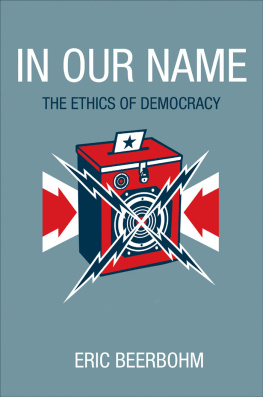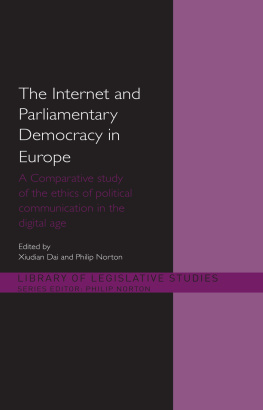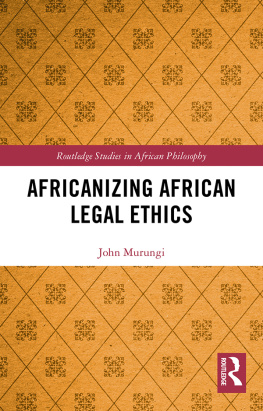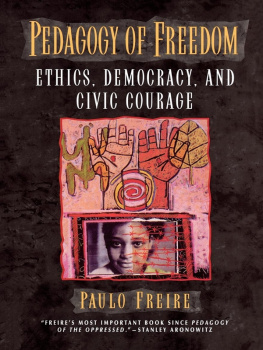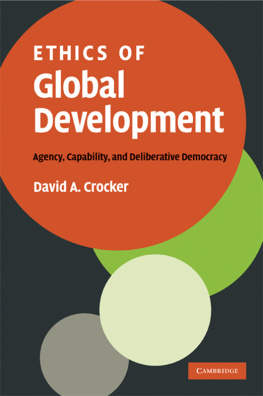Beerbohm - In our name: the ethics of democracy
Here you can read online Beerbohm - In our name: the ethics of democracy full text of the book (entire story) in english for free. Download pdf and epub, get meaning, cover and reviews about this ebook. publisher: Princeton University Press, genre: Politics. Description of the work, (preface) as well as reviews are available. Best literature library LitArk.com created for fans of good reading and offers a wide selection of genres:
Romance novel
Science fiction
Adventure
Detective
Science
History
Home and family
Prose
Art
Politics
Computer
Non-fiction
Religion
Business
Children
Humor
Choose a favorite category and find really read worthwhile books. Enjoy immersion in the world of imagination, feel the emotions of the characters or learn something new for yourself, make an fascinating discovery.
In our name: the ethics of democracy: summary, description and annotation
We offer to read an annotation, description, summary or preface (depends on what the author of the book "In our name: the ethics of democracy" wrote himself). If you haven't found the necessary information about the book — write in the comments, we will try to find it.
In our name: the ethics of democracy — read online for free the complete book (whole text) full work
Below is the text of the book, divided by pages. System saving the place of the last page read, allows you to conveniently read the book "In our name: the ethics of democracy" online for free, without having to search again every time where you left off. Put a bookmark, and you can go to the page where you finished reading at any time.
Font size:
Interval:
Bookmark:
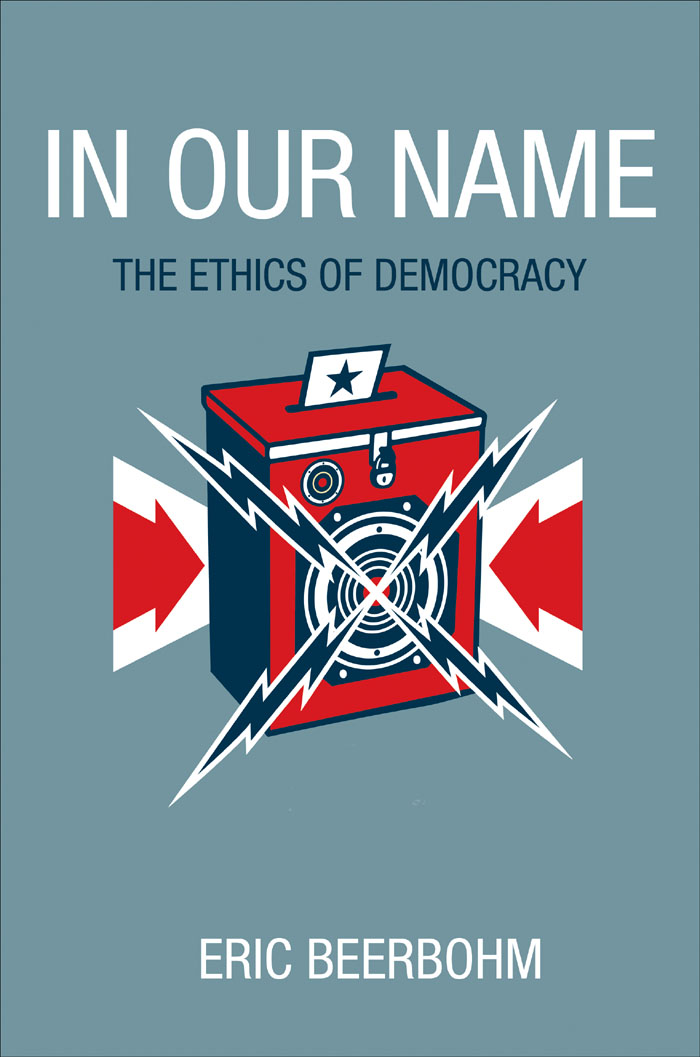
In Our Name
THE ETHICS OF DEMOCRACY
Eric Beerbohm
PRINCETON UNIVERSITY PRESS
PRINCETON AND OXFORD
Copyright 2012 by Princeton University Press
Requests for permission to reproduce material from this work should be sent to
Permissions, Princeton University Press
Published by Princeton University Press, 41 William Street, Princeton, New Jersey 08540
In the United Kingdom: Princeton University Press, 6 Oxford Street, Woodstock,
Oxfordshire OX20 1TW
press.princeton.edu
All Rights Reserved
Cover illustration courtesy of Shepard Fairey www.obeygiant.com
Library of Congress Cataloging-in-Publication Data
Beerbohm, Eric Anthony, 1975
In our name : the ethics of democracy / Eric Beerbohm.
p. cm.
Includes bibliographical references and index.
ISBN 9780691154619 (hardcover : alk. paper)
1. DemocracyMoral and ethical aspects. I. Title.
JC423.B319 2012
172dc23
2011050138
British Library Cataloging-in-Publication Data is available
Publication of this book has been aided by
This book has been composed in Sabon
Printed on acid-free paper.
Printed in the United States of America
10 9 8 7 6 5 4 3 2 1
This book is dedicated to my parents,
Kathi and Ken Beerbohm
Soon after I turned eighteen , I entered a California voting booth. The voting machinewith its crowded rows of analogue leversemitted unsettling sounds. On the ballot was an initiative with a slogan from the Great American Pastime. I am not entirely sure how I voted on the Three Strikes and Youre Out Initiative. An initiative this momentous deserved a proportionately weighty justification. I may have flipped the switch on that machine in a way that passed the bar of justice. But even then my vote would have been accidentally correct. Its not obvious that my ballot was any more likely to be correct than flipping a coin. This book charges my younger self with failing to live up to the moral principles of the office of the citizen. At the same time, it raises serious objections to the system that put me in this predicament. We havent figured out a way to shoulder the responsibilities of democracy. This book isnt a handbook for citizens and representatives attempting to respond to the demands of democracy. What it offers is a template for dividing up democracys labor. If this template is plausible, it gives us a way of distributing responsibility across the members of a polity.
Political philosophy, too, is an activity with considerable liability. If you follow through with an argument and accept the fallout of its conclusions, you are unlikely to emerge unscathed. Not only do you risk implicating yourself, but others who take your premises seriously. This isnt news. The Socratic advisory makes it clearpolitical and moral theory is a risky activity. You take the chance of misleading people about significant matters of value. If others act upon conclusions that you defend, you are an enabler. When I found myself writing a book about the potentially hazardous office held by the citizen, this cautionary note read like a health warning label.
Thanks to my generous interlocutors, this book is less likely to mislead. My appreciation for their objections and nudgings could not be greater. The art of the preface is to extend credit while offering protection from blamewithout anyone noticing this sleight of hand. We extend our gratitude to those who aid and abet the enterprise, only to absolve them of all responsibility for mistakes, large or small, that persist in the final form. This book invites the ethical version of the preface paradox.This book has its ancestry in a dissertation I submitted to Princeton University. Something must have been in the water at the Graduate Collegeseveral of us began worrying about democratic responsibility more or less simultaneously: Dan Moller, Ethan Schoolman, Chip Turner, and Alex Zakaras. It was a great time to be thinking about the individuals fragile role in social structures, where George Katebs graduate seminar demanded our rapt attention.
I want to extend heartfelt thanks to the members of my dissertation committee: Charles Beitz, for his unbelievable care and steady stream of criticisms, calibrated to devastating but not terminal, and whose encouragement has continued to this day; Stephen Macedo, who generously held me accountable to my initial concern about the relationship between philosophical reflection and political practicea worry that arose in the war room we used to design a course on ethics and public policy; Philip Pettit, who was always ahead of me in seeing my argument in the large, giving him a view of its emerging structure that was invaluable; and Alan Patten, who asked questions so challenging that, after my defense, I contemplated appending an Alan Chapter dedicated to his objections and my attempts at replies.
Drafts of this book were readin whole or partby Corey Brettschneider, Arthur Bruzzone, Dan Moller, Michael Rosen, Micah Schwartzman, Daniel Viehoff, Brookes Brown, Ryan Davis, and Lucas Swaine. Dennis Thompsons magisterial comments on a midstage version of the manuscript put my revisions on an arc that made this work far better than it would have been. I owe many colleagues thanks for comments, objections, and encouragementamong them are Arthur Applbaum, Michael Frazer, Archon Fung, Eric Nelson, Jenny Mansbridge, Derek Parfit, Rob Reich, Mathias Risse, Michael Rosen, Nancy Rosenblum, Michael Sandel, Dennis Thompson, and Richard Tuck. Arguments from this book were tested at the Harvard Humanities Center New Faculty Workshop, a Weatherhead Conference on Global Justice, the Program in Ethics in Society at Stanford, and the Government Departments of Dartmouth College and Harvard University.
This manuscript was completed on my first academic leave with the good company of the Edmond J. Safra Fellows of 200910: Moshe Cohen-Eliya, Nir Eyal, Jonathan Marks, Tommie Shelby, and, as director, Larry Lessig. I want to thank Stephanie Dent, Jennifer Campbell, and Erica Jaffe for making the Safra Center such an efficient and high-spirited place to work. In our small seminar on nonideal theory, I benefited from discussion with the first class of Safra Graduate Fellows that I had the privilege of working with: Maria Banda, Nico Cornell, Micha Glaeser, Candice Player, Sabeel Rahman, and Prithvi Datta.
I thank my editor at Princeton University Press, Rob Tempio, for his precision and exceptional support of this project, as well as Debbie Tegarden, whose production editing displayed great care and more patience than I deserved.
Most of all, I want to express my gratitude to my wife, Leslie Duhaylongsod. When we first met as undergraduates, I was just starting to make sense of this peculiar activity called political theory. More than a decade later, she remains a source of wisdom, support, and extraordinary compassion. She is an interlocutor on every fledging argument and a coprincipal in raising our own young fledgling, Justin. Her presence has enriched my theorizingand my lifein immeasurable ways.
In Our Name
Search for the moment you came to believe that your state was committing a crime. You suspected this for some time. At some point your suspicion hardened into a belief. Then it dawned on you that you live in and have some modicum of control over a democratic, unjust state. Your state tortured individuals. Or it engaged in an unjustified war. Or it failed to insure individuals against severe deprivation. When you arrived at this belief, there is a sense that you hardly learned anything new. You have long known that the world contained an alarming number of instances of injustice. But now the phenomenology is different. Where you stand seems to make an important difference.
Font size:
Interval:
Bookmark:
Similar books «In our name: the ethics of democracy»
Look at similar books to In our name: the ethics of democracy. We have selected literature similar in name and meaning in the hope of providing readers with more options to find new, interesting, not yet read works.
Discussion, reviews of the book In our name: the ethics of democracy and just readers' own opinions. Leave your comments, write what you think about the work, its meaning or the main characters. Specify what exactly you liked and what you didn't like, and why you think so.

